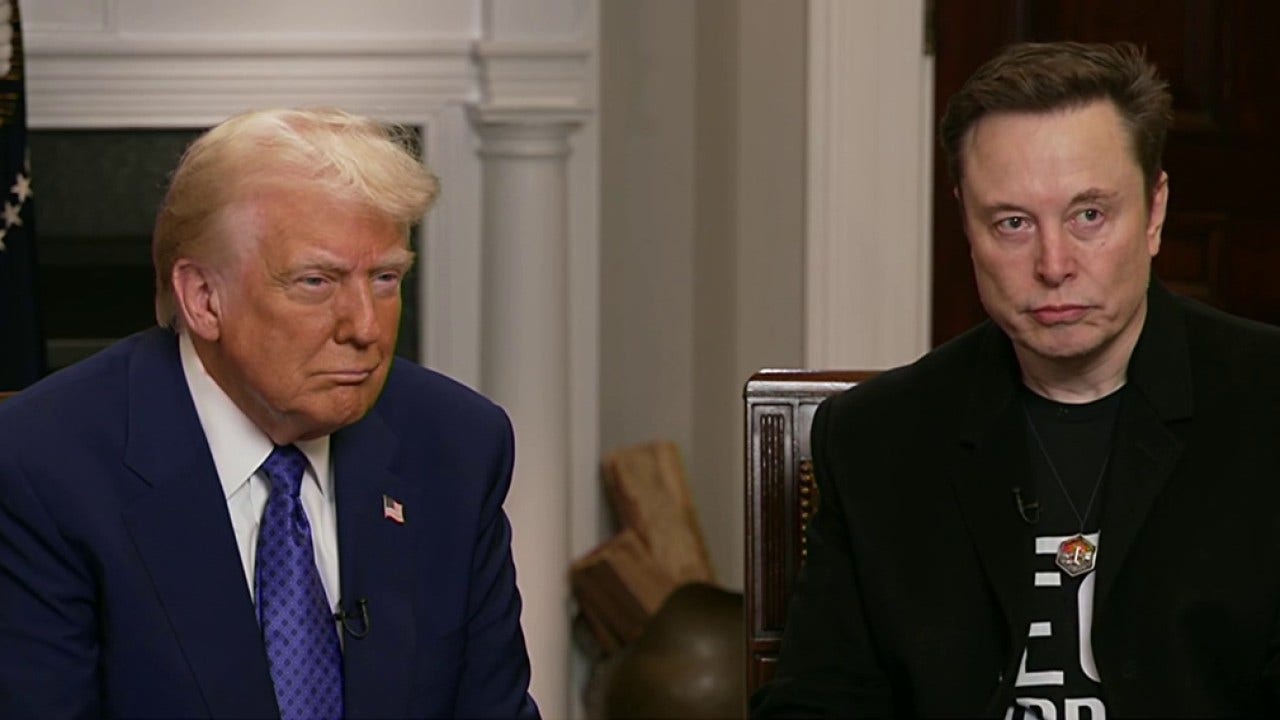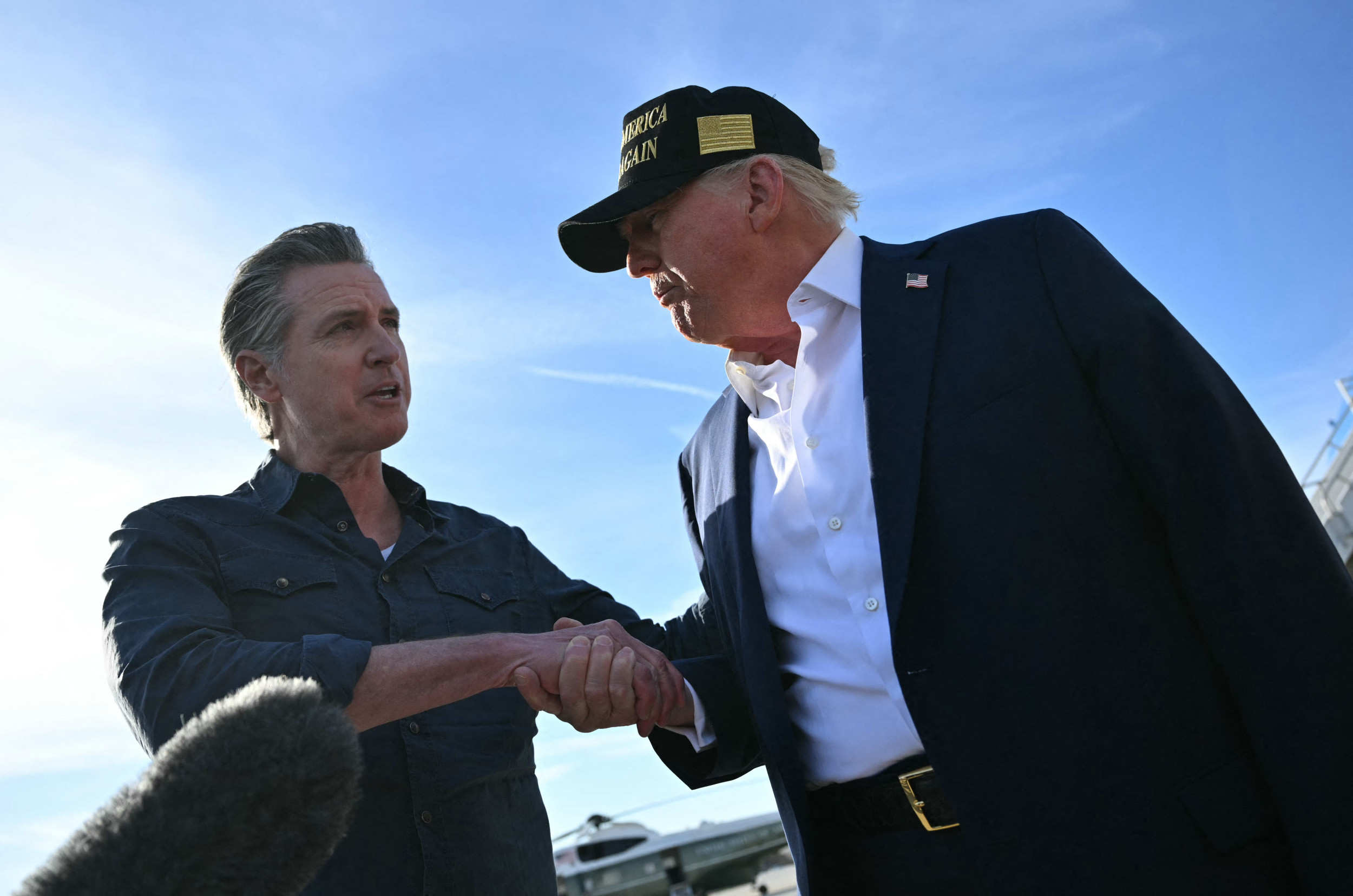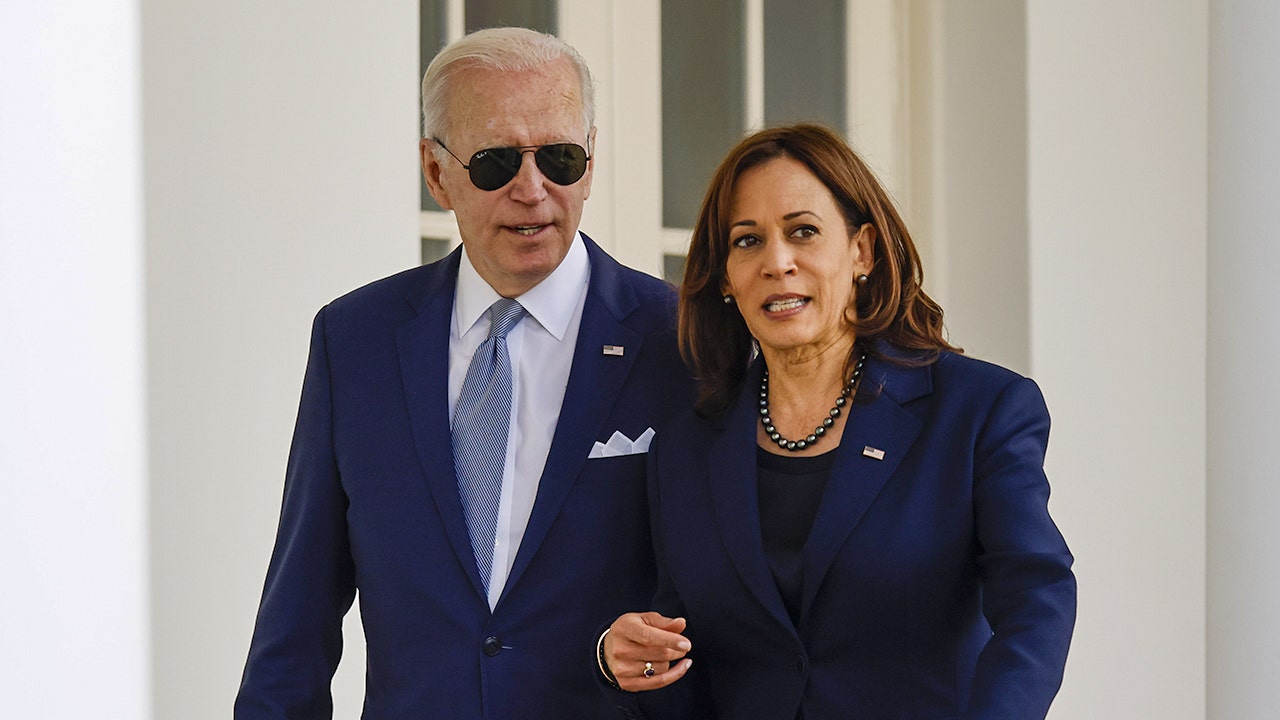President Donald Trump highlighted voter identification (ID) laws as a chief concern in California, naming it as one of the two possible conditions he might ask of the state before releasing much-needed disaster relief amid the ongoing wildfires.
Newsweek reached out to the White House and California Governor Gavin Newsom’s office for comment by email on Saturday.
Why It Matters
Voter ID laws remain a contentious issue across the United States, with inconsistent levels of requirements from state-to-state. In the runup to last year’s presidential election, voting rights group VoteRiders said the number of voters who called or texted its advice helpline increased by 261 percent in 2024 relative to the 2020 presidential election.
Data from the Center for Public Integrity has found that 26 states have made voting less accessible since 2020.
A report issued in October 2024 by the Brookings Institution and relying on extensive historic data found instances of voter fraud remain incredibly scarce despite the alarm and concern. Citing the 62 lawsuits Trump and his allies filed following the 2020 election, the report found only one case that succeeded before the Pennsylvania Supreme Court overturned the ruling.
Mandel Ngan/AFP via Getty Images
What To Know
On Friday, Trump visited disaster areas in North Carolina where Hurricane Helene ripped through the state in September 2024 and in California where authorities had contained or push back wildfires that ravaged parts of Los Angeles County earlier this month.
After touching down in North Carolina, Trump said he would like to see California enact voter ID requirements and “make the water flow,” indicating it might be tied to releasing disaster relief to the state.
Trump reiterated the stance at a later press conference, saying: “In California, I have a condition. In California, we want them to have voter ID, so the people have a voice, because right now the people don’t have a voice, because you don’t know who’s voting. It’s very corrupt.”
Trump made voter ID a major cause after raising a number of concerns in the 2020 election about requirements in battleground states that he narrowly lost. Trump and his supporters claimed that the election was marred by voter fraud, including voters who cast multiple ballots or ballots cast for dead people.
Despite extensive evidence showing that voter fraud remains scarce, Trump has continued to press a need for stricter voter ID laws as well as same day voting requirements and other measures that would make it harder to vote.

What States Have Voter ID Laws?
According to the National Conference of State Legislatures, 36 states have laws requesting or requiring voters to show some form of identification at the polls. The remaining 14 states and the District of Columbia use other methods to verify voter identity.
States with the strictest voter ID laws requiring photo ID include Arkansas, Georgia, Indiana, Kansas, Mississippi, North Carolina, Ohio, Tennessee and Wisconsin. Arizona, North Dakota and Wyoming have strict voter laws requiring identification but not necessarily photo identification.
Wyoming voters can provide a valid Medicare or Medicaid insurance card, which do not have photos on them, or any identification card issued by a state. Arizona voters can also use utility bills or bank statements to prove identity.
States with non-strict voter ID laws, meaning that ID may be requested but not required, include Alabama, Florida, Idaho, Kentucky, Louisiana, Michigan, Missouri, Montana, Nebraska, Rhode Island, South Carolina, South Dakota, and Texas.
In Texas, voters who possess acceptable forms of photo ID must present it at the polls when voting in person. If a voter does not possess and cannot reasonably obtain one of the seven approved forms of photo ID, they may fill out a Reasonable Impediment Declaration at the polls and present an alternative form of ID, such as a utility bill, bank statement, government check, or a voter registration certificate.
Those that have non-strict laws and would request non-photo ID include Alaska, Colorado, Connecticut, Delaware, Iowa, New Hampshire, Oklahoma, Utah, Virginia, Washington and West Virginia.
California, Hawaii, Illinois, Maine, Maryland, Massachusetts, Minesota, Nevada, New Jersey, New Mexico, New York, Oregon, Pennsylvania, Vermont, and Washington, D.C., do not have any requirement at all to show ID or even request it, using alternative methods (usually signature) to verify identity.
What Are California’s Voter ID Laws?
According to the website for California’s secretary of state, “in most cases, a California voter is not required to show identification to a polling place worker before casting a ballot.”
One of the exceptions would be for first time voters registering to vote by mail, in which case they must provide a driver license number, a California identification number or the last four digits of their Social Security number.
Should the registrant not provide any of that information, they may need to bring identification to their polling place or include a copy of it with the vote-by-mail ballot.
Other forms of acceptable identification include a copy of a recent utility bill, a passport, student identification showing name and photograph, and more, which can be found on the agency’s website.
Should the voter roll not have the voter’s name at the polling place where they believe they are registered to vote, they can cast a provisional ballot, which includes those who registered to vote by mail but decided instead to vote in-person. Provisional ballots are only counted after election officials confirm that the voter is registered in that county and did not already vote by another method.
Provisional ballots that have a signature that doesn’t match the registered signature will be rejected.
What People Are Saying
Tara Gallegos, deputy director of communications for the Office of Governor Gavin Newsom, told Newsweek in an email on Friday that the president’s claims are “misinformation” and stressed that “conditioning aid for American citizens is wrong.”
Democratic Senator Alex Padilla of California wrote on X, formerly Twitter: “Disaster aid isn’t a political bargaining chip. Trump says he’ll only approve aid for fire victims if the state implements voter ID? This is nothing but pure political payback for a state that refused to support him in his last three presidential bids.”
He added in another post: “For six years I oversaw California’s elections. So let me be clear: California’s elections are free, fair, and secure. Voter ID laws make it harder for eligible voters to cast their ballot. They are a solution in search of a problem.”
GOP Senator John Barrasso of Wyoming last week told Fox Business host Larry Kudlow: “It is heartbreaking what we’re seeing happening right now in California, and we have our Wyoming National Guard helping out there…but if there’s going to help from the federal government, you’re absolutely right: there has to be accountability for that money. It cannot be a blank check.
“What we’ve seen, and even the fire chief of LA County has said that they were let down by the mayor, the elected officials—I mean, gross negligence at the state and local level, where the fire department had $17 million taken away from their budget, and they were already stretched too thin, and they used the money for social programs.”
What Happens Next
Neither side, the White House or Newsom’s office, have yet blinked in this faceoff over federal aid, but the president is set to speak at a rally in Las Vegas on Saturday afternoon, which will be his first public comments following his visit to the disaster zones.
Newsom revealed on Friday that the state legislature had approved $2.5 billion in relief funds for Los Angeles County, which will be used to help get the region back on its feet.











